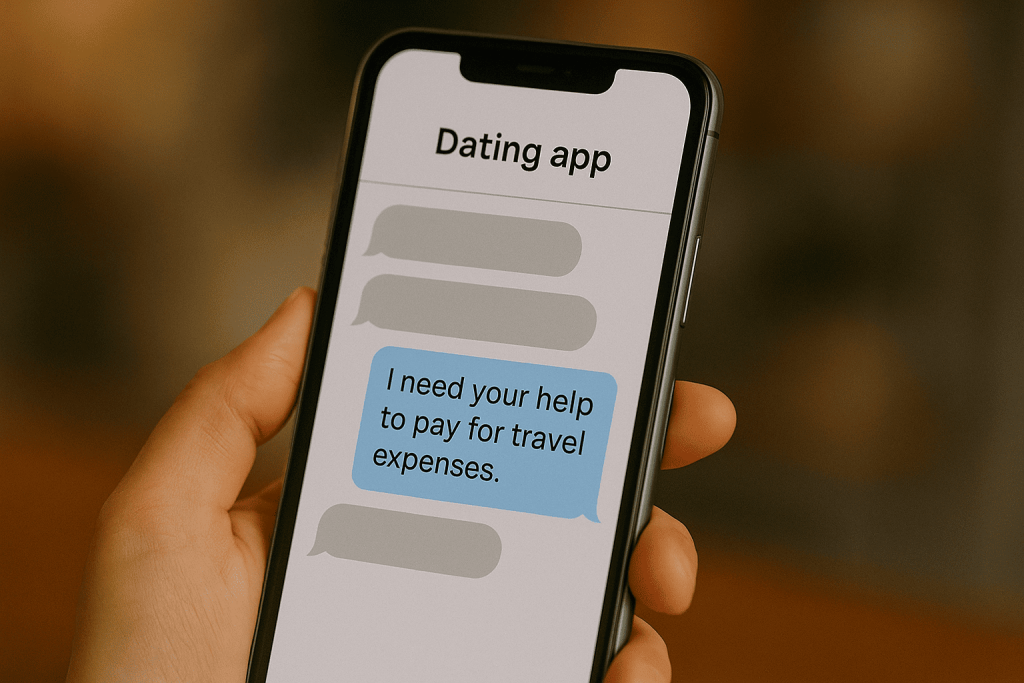Online dating has made it easier than ever to meet new people, but it has also opened the door to scammers who prey on vulnerable individuals looking for love. Romance scams are on the rise worldwide, costing victims not just money but also emotional well-being. The good news is that most scams follow predictable patterns and if you know the red flags to watch out for, you can protect yourself before it’s too late.
Why Online Dating Scams Are Growing
With millions of people turning to dating apps and platforms, scammers see opportunities to exploit trust. They create fake profiles, steal photos, and use manipulative tactics to gain sympathy, affection, or money. What makes these scams so dangerous is that they target not only wallets but also emotions.
By understanding how scammers operate, you can avoid falling into their traps and focus on building real, genuine connections.
Common Red Flags in Online Dating
Here are the most important warning signs you should never ignore:
1. Too Good to Be True Profiles
If someone’s photos look like they came from a magazine or their story feels overly perfect, it’s a sign to be cautious. Scammers often use stolen images and fabricated details to create an irresistible persona.
2. Rushing Intimacy
One of the biggest giveaways is when someone professes love or deep feelings too quickly. Genuine relationships take time, but scammers fast-track emotions to gain your trust.
3. Avoiding Video or In-Person Meetings
Scammers almost always have excuses for why they can’t video chat or meet in person. If weeks go by without a face-to-face interaction, consider it a serious red flag.
4. Inconsistent Stories
If details about their job, family, or location change frequently, that’s a sign they may be fabricating their background.
5. Requests for Money or Help
This is the ultimate red flag. Whether it’s a “sick relative,” a “stolen wallet,” or a “business emergency,” scammers often create dramatic stories to pressure you into sending money.
6. Pressure to Move Off the Platform
If they want to switch to email, WhatsApp, or another app right away, be cautious. Dating platforms often have security measures, so scammers try to lure you away where it’s easier to manipulate.

Psychological Tactics Scammers Use
Scammers don’t just lie they use psychology to manipulate emotions. Some of their common tactics include:
- Love bombing: Overwhelming you with affection and compliments to lower your guard.
- Guilt trips: Making you feel responsible for their fake misfortunes.
- Urgency: Pushing you to act fast, whether it’s sending money or making decisions.
By being aware of these strategies, you can take a step back and evaluate whether the connection feels authentic or manipulative.
How to Protect Yourself from Online Dating Scams
Protecting yourself doesn’t mean being paranoid it means being smart. Here are some safety tips:
- Verify Photos – Do a reverse image search to check if their pictures are stolen.
- Take Your Time – Don’t rush into emotional or financial commitments.
- Never Send Money – No matter how convincing the story, never transfer money to someone you haven’t met in person.
- Keep Conversations on the Platform – Until trust is built, avoid moving to private messaging apps.
- Trust Your Gut – If something feels “off,” it probably is.
The Real Cost of Online Scams
Beyond financial loss, romance scams leave victims with deep emotional scars. Many feel ashamed or blame themselves, but it’s important to remember: anyone can be targeted. Scammers are skilled manipulators who exploit human vulnerability.
Trusted and True is the first dating platform truly dedicated to eliminating fake profiles, bot scams, and catfishing. Stay ahead of the curve join our newsletter today and be the first to know about our latest updates and developments.











